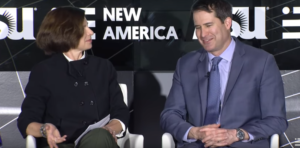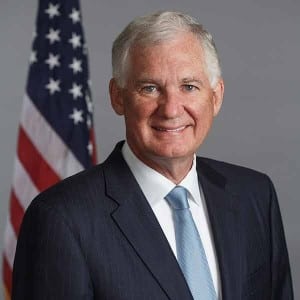
The United States must consider investing in next-generation technologies over legacy programs, developing new arms control policies for autonomous systems and building fresh alliances to counter China in the decades ahead, Rep. Seth Moulton (D-Mass.), now a 2020 presidential candidate, said April 29. Speaking Monday afternoon at New America’s Future Security Forum in Washington, D.C., Moulton outlined portions of his national security policy, and stated that as president in 2020, he would push for the Pentagon to invest more in…

 By
By 











